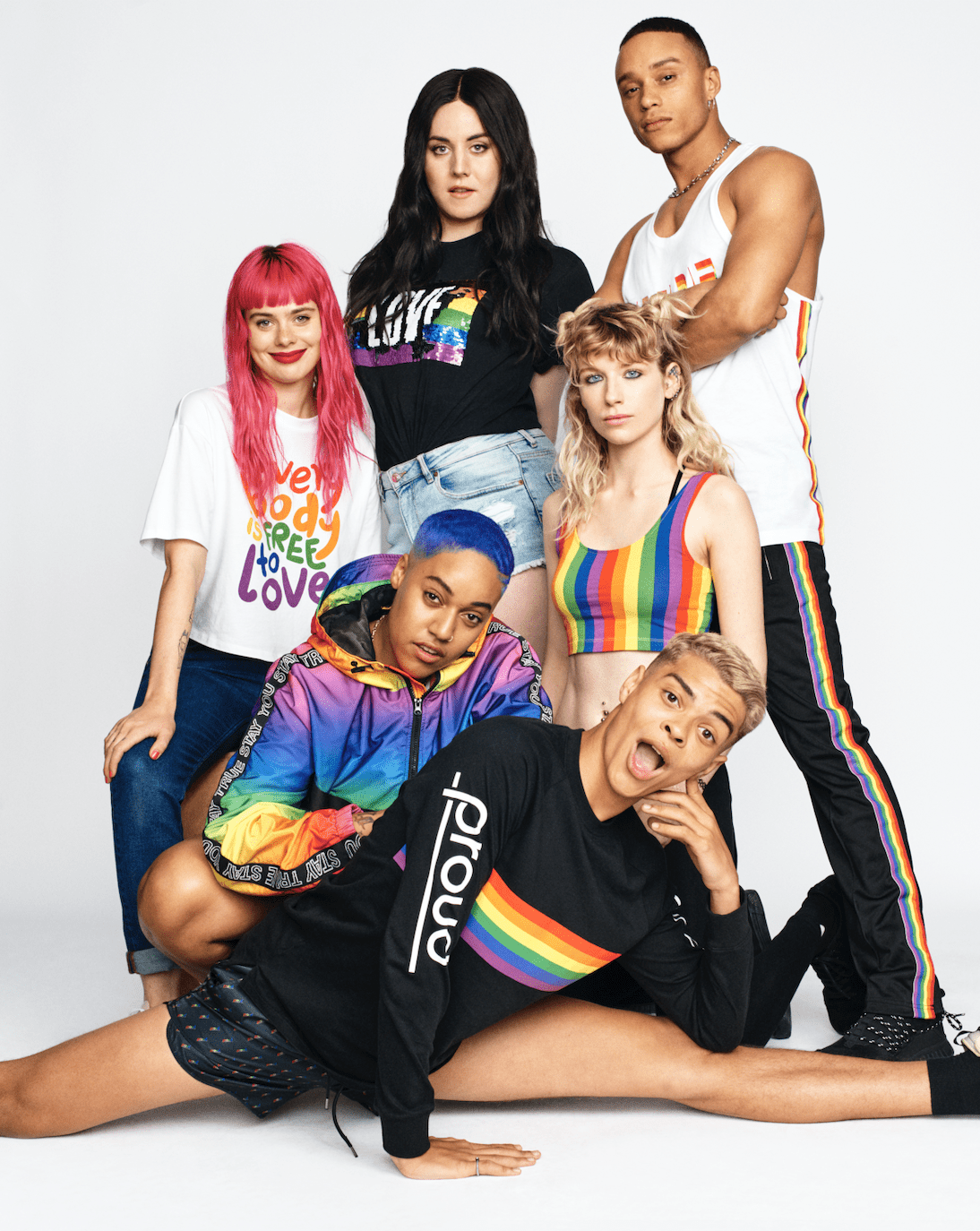It’s February 2020, the first LGBTQ+ History month of the decade. With this topic at the forefront, the question of ‘rainbow capitalism’ has once again been raised as we question the faith behind multi-coloured marketing. The presence of rainbow-clad advertisement inevitably sparks conversations surrounding the LGBTQ+ community and allows them rightful visibility in society. However, are these just shallow attempts at cashing in on a group of people who have just recently gained acceptance in mainstream media? How can commercialisation be a form of support?

Big business has exploited the pride atmosphere, and this can be seen explicitly within the fashion industry. More and more brands have mindlessly attempted pride celebration. For example, fast-fashion brand Boohoo created the #LoveWithoutLimits campaign in 2019 which featured various colourful T-shirts, bumbags, sequin skirts and more. The company contributed 10% of the profits to LGBTQ+ charities. Whilst obviously still positively contributing to charity, the mere 10% shows it was a clear marketing tactic to masquerade as championing the community whilst still amassing a huge profit. The brand also created a low-effort attempt at activism for the consumer, which in reality doesn’t achieve much, particularly when this same activism is deserted by these businesses for the remainder of the year. Even worse, it was reported by Reboot Online that in 2019, two in five companies with Pride campaigns donated no proceeds to LGBTQ+ causes.

This rainbow-washing (basically sticking a rainbow on a piece of clothing and calling it a day) allows brands to capitalise off of a marginalised community, one that has only just gained greater acceptance. Reducing queer history into colourful commodities ignores issues that pride aims to challenge.
These issues may include but aren’t limited to: transphobia, violence against LGBTQ+ people, workplace and housing discrimination, the difficulties of same-sex adoption and much more.
Another recognisable concern lies in many of these brands previously being a part of or collaborating with notoriously anti-LGBTQ+ companies. It has been reported in the U.S that Former Senator Rick Santorum, who once openly compared homosexuality to incest and bestiality, received thousands of dollars worth of political donations from the CEO of Urban Outfitters, Richard Hayne. This creates an uncomfortable paradox when Urban Outfitters attempt to celebrate Pride, and even partner with GLSEN in support of LGBTQ+ youth. There is a duality here that is inherently ingenuine and in bad faith.

So, how can this be changed in a capitalist society? More can be done. This could include the hiring of LGBTQ+ employees, making sure that they are partnered with allies and the guarantee that companies donate all their proceedings to a reputable charity. There have been positive examples of this, such as the ASOS x GLAAD 2019 collaboration in which 100% of the proceeds were given to LGBTQ+ causes. Therefore, active steps towards inclusivity must be taken for campaigns to gain legitimacy.
Ultimately, the celebration of pride is far greater than just purchasing a sequin skirt or rainbow sliders online. As the inclusion of the LGBTQ+ community becomes standard, companies need to work harder in ensuring they are creating inclusive environments every month of the year.

